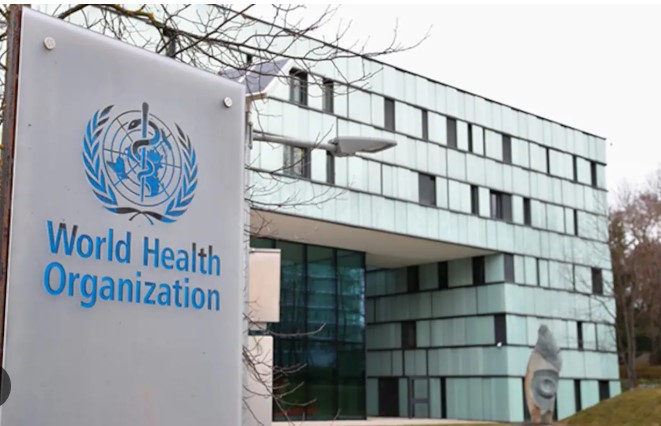Adamawa State Governor, Ahmadu Fintiri, on Monday ordered a 24-hour curfew in Lamurde Local Government Area (LGA) following renewed communal violence that erupted on Sunday evening. The directive, communicated through a statement by Hussaini Hammangabdo, Press Secretary to the Deputy Governor, came in response to violent clashes and a breakdown of peace in several communities within the LGA. Read Also: ADC inaugurates caretaker leadership in Adamawa Security agencies have been instructed to move promptly into affected areas to stabilise the situation and safeguard lives and property. In a supporting statement, the Adamawa State Police Command confirmed that it is fully mobilised…
Author: Helen Okechukwu
WHO said the hospital was struck no fewer than three times, while paramedics and volunteers attempting to evacuate the injured from the kindergarten came under fire.
The Anambra State Police Command has begun a full-scale manhunt for the unknown gunmen who launched a deadly attack near the Afor Market Junction in Nawfia, Njikoka Local Government Area, on Sunday, leaving several persons feared dead. Residents said the assailants stormed the busy junction in the evening and opened fire indiscriminately, causing panic as people ran for safety. Some victims were reportedly killed on the spot while others sustained life-threatening injuries. A community source said the gunmen “invaded Afor Market Junction and immediately opened fire, killing a lot of people,” adding that the motive behind the attack remained unclear.…
In a sweeping series of intelligence-driven operations, the National Drug Law Enforcement Agency (NDLEA) has disrupted major drug trafficking networks across the country. This development led to the arrest of several suspects and seizure of millions of opioid pills and tonnes of cannabis from syndicates operating in multiple states. The operations, conducted between 1 and 6 December, led to the recovery of more than 7.6 million tramadol pills and 76,273.4 kilograms of cannabis, including Colorado, Loud and Skunk. The coordinated raids targeted warehouses, forest hideouts, and vehicles used by drug trafficking organisations to move illicit consignments across state lines. Read…
The Edo State Government has announced a renewed drive to improve environmental hygiene and curb pollution as it begins full implementation of its recently enacted Sanitation and Pollution Management Law. During a stakeholders’ engagement in Benin City on Sunday, the Commissioner for Environment and Sustainability, Nosa Adams, said the law would serve as a framework for restoring degraded areas, strengthening sanitation systems, and promoting responsible waste disposal across the state. Adams noted that reversing years of environmental decline required a combination of remediation efforts and sustained public consciousness. He urged residents to embrace cleaner habits at home and within their…
The discovery of decomposed and mutilated corpses in a private mortuary at Umuhu Autonomous Community, Ngor-Okpala, has triggered widespread fears of illegal organ-harvesting activities. This development prompted the Imo State Government to seal the facility and an adjoining hotel allegedly linked to the prime suspect. The operation, carried out on Saturday, formed part of an intensified crackdown on kidnapping and violent crimes along the Owerri–Aba Expressway. It was led by the Commissioner of Police (CP), Aboki Danjuma, in collaboration with community stakeholders and security operatives. In a statement issued by the police spokesperson of the Imo State Police Command (DSP)…
The Lagos State Government has intensified its push toward agricultural modernisation with the distribution of mechanised farm tools, critical inputs, and financial support to 2,000 farmers across the National Programme for Food Security (NPFS) sites in the State. The intervention reflects the State’s broader agenda to move farmers away from manual, labour-intensive methods toward modern mechanised practices capable of meeting Lagos’ growing food demands. During the 2025 Farmers Field Day/Appreciation Day held at the Lagos State Agric Cooperative Hall, Oko-Oba, the Commissioner for Agriculture and Food Systems, Ms. Abisola Olusanya, represented by the Permanent Secretary, Mr. Emmanuel Audu, said the…
The Delta State Police Command has intensified its crackdown on violent crime and illicit drug activities, recording major breakthroughs with the recovery of firearms in Abraka and the arraignment of eighteen suspects linked to drug-related offences across the State. The documents shared on Saturday, noted thag, the operatives of the CP-Special Assignment Team (CP-SAT), led by ASP Julius Robinson, on 6 December 2025 carried out an intelligence-led operation at No. 2 Umeghe Community, Abraka. Acting on credible intelligence, the team searched the residence of 67-year-old Isiakpere Friday, where they recovered two pump-action guns and thirty-nine live cartridges. Read Also: Rivers police…
NAPTIP: Nigeria needs unified evidence standards to combat human trafficking
Stakeholders across Southern Ijaw Local Government Area has raised pressing concerns over gaps in primary healthcare, education, and security during a consultative meeting on the Council’s 2026 budget strategy and allocation framework. The session, hosted by the Executive Chairman of Southern Ijaw LGA, Hon. Target Segibo recently, convened traditional rulers, youth leaders, women representatives, and other key community stakeholders to discuss the Citizens’ Budget, which details allocations from the Federation Account and internally generated revenue. Read Also: Ijaw congress urges Tinubu to caution Wike over remarks Speaking at the meeting, Hon. Segibo emphasised the Council’s commitment to transparency and inclusive governance.…












